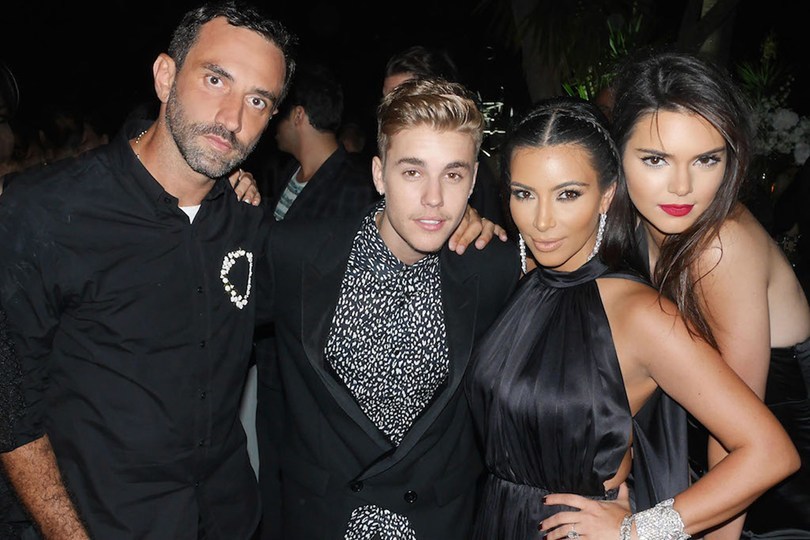As always, the debate about Kim Kardashian’s talent, or lack there of, rages strong – particularly with the release of her book Selfish. New York Magazine’s divisive art critic Jerry Saltz recently declared that Kim is taken seriously now. Not surprisingly, the chorus of comments that followed ranged from ‘speak for yourself’ to slut-shaming the reality star. We can debate how seriously we should take Kim until Kanye stops praising himself, but one thing cannot be denied – there is an evident growing appreciation of Kim Kardashian. Yet, despite her style evolution, Kim really has not changed a whole lot over the years, not enough for us to suddenly change how we think of her. What has changed is the culture surrounding her.
Today, it’s not unusual for someone to embrace the so-called high and low cultures, the cool and uncool, the mainstream and niche. I think of my 16-year-old sister. On Facebook she’ll happily admit her love for Kim K, while also talking about feminism and politics. She loves an obscure indie band as much as she loves Lady Gaga – and is not afraid to admit it. Have our tastes significantly changed? I would argue no. What has changed, however, is our openness about them.
The Internet has played a large role in this. We no longer wait for a few broadsheet critics to determine what is good taste. New media allows for a quicker exchange of ideas, where everyone can offer their criticism, often before a mainstream media outlet has the opportunity to share their own. It’s also much easier to admit you enjoy Miley’s new song from behind a computer screen than to disapproving faces. And as more people share their interests online, the discourse too has shifted offline. Name one person who does not like Beyoncé. It’s unlikely those in the 70s punk scene as readily voiced their enthusiasm for Donna Summer to their buddies.
There are currently so many collaborations between ‘cool’ and ‘popular’ artists that it is hard to ignore the merging, or perhaps the disbanding, of the hi-lo cultures. Jay Z’s worked with performance artist Marina Abramovic, The Weeknd featured on Ariana Grande’s Love Me Harder, and most recently Kendrick Lamar raps on Taylor Swift’s Bad Blood. Then there is Kim Kardashian and pretty much the entire fashion industry. It would be naïve to discount exposure and financial gain as their motivation, but fans from both parties seem to welcome these genre crossovers. With unprecedented access to music, film and television, the idea of aligning ourselves with a singular subculture seems limiting. The Internet allows us to explore different genres – from country to hip-hop – in our own space, where we are the only critics in the room and can appreciate the music away from the noise.
The idea of being authentic came about with the Beatniks’ rejection of the mainstream, and something similar is happening here. But rather than moving away from the mainstream we’re moving away from authority – policed authenticity – where someone else is in charge of deeming what is good taste. The ‘bad feminist’ movement, led by author Roxane Gay and Lena Dunham, embodies this. We are human, full of contradictions, which may mean that we are for equal rights but still enjoy watching the Bachelor. Owning our conflicting interests does not mean we are dumber, superficial or boring, it just means that what we enjoy is not shaped by shame or guilt.
And while many give rise to the idea that culture is dead and that we are all passive consumers influenced by mass media, there is an awareness and dialogue around these often-problematic entertainers and TV shows. My sister knows that Keeping up with the Kardashians is anything but reality. She does not aspire to be Kim but she does enjoy watching her. Think of all the young, assertive women sharing opinion pieces through their online networks, who take pride in calling themselves a feminist – this hardly seems to point towards culture’s decline.
In her wonderful blog Brain Pickings, Maria Popova discusses author Greil Marcus’s 2013 New York’s School of Visual Arts commencement speech. During the speech, Marcus talks about the criticism surrounding The Great Gatsby‘s reprint with Baz Luhrmann’s poster on the cover. “It all comes down to that urge to fascism to know what’s best for people….to decide what covers on what books people ought to read, what songs people ought to be moved by, what art they ought to make, an urge that makes art into a set of laws that take away your freedom rather than a kind of activity that creates freedom or reveals it.”
The notion that just because you happen to enjoy something considered frivolous means you are not capable of critical thought has become tiresome. Sure, you may like a band praised on Pitchfork while at the same time enjoying the latest Taylor Swift hit. This does not necessarily mean that you think the same amount of artistic cred be given to the latter. It just means you want the freedom to enjoy whatever you damn well choose without judgement.
Credits
Text Jean Kemshal-Bell
